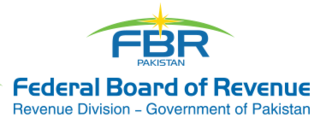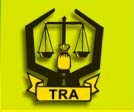
The Inland Revenue was, until April 2005, a department of the British Government responsible for the collection of direct taxation, including income tax, national insurance contributions, capital gains tax, inheritance tax, corporation tax, petroleum revenue tax and stamp duty. More recently, the Inland Revenue also administered the Tax Credits schemes, whereby monies, such as Working Tax Credit (WTC) and Child Tax Credit (CTC), are paid by the Government into a recipient's bank account or as part of their wages. The Inland Revenue was also responsible for the payment of child benefit.
The Canada Revenue Agency is the revenue service of the Canadian federal government, and most provincial and territorial governments. The CRA collects taxes, administers tax law and policy, and delivers benefit programs and tax credits. Legislation administered by the CRA includes the Income Tax Act, parts of the Excise Tax Act, and parts of laws relating to the Canada Pension Plan, employment insurance (EI), tariffs and duties. The agency also oversees the registration of charities in Canada, and enforces much of the country's tax laws.

HM Revenue and Customs is a non-ministerial department of the UK Government responsible for the collection of taxes, the payment of some forms of state support, the administration of other regulatory regimes including the national minimum wage and the issuance of national insurance numbers. HMRC was formed by the merger of the Inland Revenue and HM Customs and Excise, which took effect on 18 April 2005. The department's logo is the St Edward's Crown enclosed within a circle.

The minister of national revenue is the minister of the Crown in the Canadian Cabinet who is responsible for the Canada Revenue Agency (CRA), as well as the administration of taxation law and collection.

Taxes in New Zealand are collected at a national level by the Inland Revenue Department (IRD) on behalf of the New Zealand Government. National taxes are levied on personal and business income, and on the supply of goods and services. Capital gains tax applies in limited situations, such as the sale of some rental properties within 10 years of purchase. Some "gains" such as profits on the sale of patent rights are deemed to be income – income tax does apply to property transactions in certain circumstances, particularly speculation. There are currently no land taxes, but local property taxes (rates) are managed and collected by local authorities. Some goods and services carry a specific tax, referred to as an excise or a duty, such as alcohol excise or gaming duty. These are collected by a range of government agencies such as the New Zealand Customs Service. There is no social security (payroll) tax.
Income taxes are the most significant form of taxation in Australia, and collected by the federal government through the Australian Taxation Office. Australian GST revenue is collected by the Federal government, and then paid to the states under a distribution formula determined by the Commonwealth Grants Commission.

The Federal Board of Revenue (FBR) (Urdu: وفاقی بورڈ محصولات), formerly known as Central Board of Revenue (CBR), is a federal law enforcement agency of Pakistan that investigates tax crimes, suspicious accumulation of wealth, money-laundering make regulation of collection of tax. FBR operates through Inspectors-IR that keep tax evaders under surveillance, assess taxable incomes and perform special tasks for FBR Headquarters. FBR performs role of collection of taxation in the country from all individuals and businesses.
Inland Revenue or Inland Revenue Department is the public service department of New Zealand charged with advising the government on tax policy, collecting and disbursing payments for social support programmes, and collecting tax.
Under Article 108 of the Basic Law of Hong Kong, the taxation system in Hong Kong is independent of, and different from, the taxation system in mainland China. In addition, under Article 106 of the Hong Kong Basic Law, Hong Kong has independent public finance, and no tax revenue is handed over to the Central Government in China. The taxation system in Hong Kong is generally considered to be one of the simplest, most transparent and straightforward systems in the world. Taxes are collected through the Inland Revenue Department (IRD).

The Bureau of Internal Revenue(Filipino: Kawanihan ng Rentas Internas, or BIR) is a revenue service for the Philippine government, which is responsible for collecting more than half of the total revenues of the government. It is an agency of the Department of Finance and it is led by a Commissioner.

The Singapore Customs is a government agency under the Ministry of Finance of the Government of Singapore. Singapore Customs was reconstituted on 1 April 2003, after the Customs and Excise Department and the Trade Facilitation Division and Statistics Audit Unit of International Enterprise Singapore were merged. The border function's at the land, air and sea checkpoints were also simultaneously transferred to Immigration and Checkpoints Authority (ICA). Singapore Customs became the lead agency on trade facilitation and revenue enforcement matters. It is also responsible for the implementation of customs and trade enforcement measures including those related to Free Trade Agreements and strategic goods.

The Division of Alcoholic Beverages and Tobacco (ABT) is the Florida state government agency which licenses and regulates the sale of alcoholic beverages and tobacco. It is part of the Florida Department of Business and Professional Regulation (DBPR).

The Royal Malaysian Customs Department is a government department body under the Malaysian Ministry of Finance. RMCD functions as the country's main indirect tax collector, facilitating trade and enforcing laws. The top management of JKDM is led by the Director General of Customs and assisted by 3 deputies, namely, the Deputy Director General of Customs Enforcement/Compliance Division, the Deputy Director General of Customs Customs/Inland Tax Division and the Deputy Chief Director of Customs Management Division. The Royal Malaysian Customs Department consists of several divisions, namely the Enforcement Division, the Inland Tax Division, the Compliance Division, the Customs Division, and the Technical Services Division.
The Oklahoma Tax Commission (OTC) is the Oklahoma state government agency that collects taxes and enforces the taxation and revenue laws of the state. The Commission is composed of three members appointed by the Governor of Oklahoma and confirmed by the Oklahoma Senate. The Commissioners are charged with oversight of the agency but appoint an Executive Director to serve as the chief administrative officer of the Commission and to oversee the general practices of the Commission.

The Tanzania Revenue Authority (TRA) is a semi-autonomous Government Agency of the United Republic of Tanzania. It was established by the Tanzania Revenue Authority Act, CAP. 339 in 1995 and started its operations on the 1st of July 1996. It is headed by the Commissioner General. The Current Commissioner General is Alphayo Kidata

The Income Tax Department is a government agency undertaking direct tax collection of the government of India. It functions under the Department of Revenue of the Ministry of Finance. The Income Tax Department is headed by the apex body Central Board of Direct Taxes (CBDT). The main responsibility of the Income Tax Department is to enforce various direct tax laws, most important among these being the Income-tax Act, 1961, to collect revenue for the government of India. It also enforces other economic laws such as the Benami Transactions (Prohibition) Act, 1988, and the Black Money Act, 2015.

The Spanish Tax Administration Agency, commonly known as Agencia Tributaria, is the revenue service of the Kingdom of Spain. The agency is responsible for the effective application of the national tax and customs systems and for those resources of other Public Administrations and the European Union whose management is entrusted to it by law or agreement.
Taxation in Sri Lanka mainly includes excise duties, value added tax, income tax and tariffs. Tax revenue is a primary constituent of the government's fiscal policy. The Government of Sri Lanka imposes taxes mainly of two types in the forms of direct taxes and indirect taxes. As of 2018 CBSL report, taxes are the most important revenue source for the government, contributing 89% of the revenue. The tax revenue to GDP ratio is just about 11.6 percent as of 2018, which is one of the lowest rates among the upper-middle income earning countries. At present, the government of Sri Lanka also face major challenges regarding the continuous budget deficits where government expenditures have exceeded the government tax revenue.
The North Carolina Department of Revenue was created in 1921 by the North Carolina General Assembly. The department is headed by a Secretary that is appointed by the Governor. The secretary is a member of the North Carolina Cabinet. Currently, the department is responsible for administering the collection of the North Carolina state income tax, gasoline tax, sales tax, beverage tax, and inheritance tax.
The California Department of Tax and Fee Administration (CDTFA) is the public agency charged with assessing and collecting sales and use taxes, as well as a variety of excise fees and taxes, for the U.S. state of California. The department has several other ancillary functions, such as ensuring that sellers comply with permit requirements. The department was formed on January 1, 2018, by the Taxpayer Transparency and Fairness Act of 2017, which reduced the California State Board of Equalization to its constitutional functions of supervising county tax assessors and assessing certain specified types of property.












